Pregnancy is a time of joy and anticipation, as you embark on the incredible journey of bringing a new life into the world. As an expectant mother, you are constantly mindful of what you eat and drink, ensuring that your diet supports both your own health and the optimal development of your baby. In recent years, there has been much debate about the consumption of roasted peanuts during pregnancy. Are they safe? Do they offer any benefits? In this comprehensive guide, we will delve into the topic of roasted peanuts in early pregnancy, exploring the potential advantages, risks, and recommendations for expectant mothers.

.
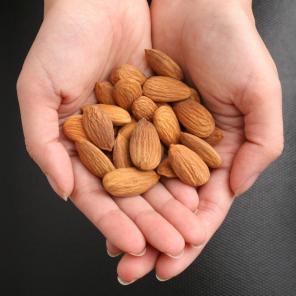 ## The Nutritional Value of Roasted Peanuts Peanuts are a popular snack enjoyed by many due to their delicious taste and crunchy texture. However, they also happen to be a nutritional powerhouse, packed with essential nutrients that are beneficial for both you and your baby during pregnancy. Roasted peanuts are an excellent source of protein, which is essential for the growth and development of your baby’s tissues, organs, and muscles. They also contain healthy fats, such as monounsaturated and polyunsaturated fats, which are important for brain development and the absorption of fat-soluble vitamins like A, D, E, and K. Additionally, roasted peanuts are rich in key vitamins and minerals, including folate, iron, calcium, and zinc. Folate is crucial for preventing neural tube defects in the early stages of pregnancy, while iron helps prevent anemia and supports the production of red blood cells. Calcium is essential for the development of your baby’s bones and teeth, while zinc plays a role in immune function and DNA synthesis. By including roasted peanuts in your diet, you can supplement these vital nutrients and support the healthy growth and development of your baby.
## The Nutritional Value of Roasted Peanuts Peanuts are a popular snack enjoyed by many due to their delicious taste and crunchy texture. However, they also happen to be a nutritional powerhouse, packed with essential nutrients that are beneficial for both you and your baby during pregnancy. Roasted peanuts are an excellent source of protein, which is essential for the growth and development of your baby’s tissues, organs, and muscles. They also contain healthy fats, such as monounsaturated and polyunsaturated fats, which are important for brain development and the absorption of fat-soluble vitamins like A, D, E, and K. Additionally, roasted peanuts are rich in key vitamins and minerals, including folate, iron, calcium, and zinc. Folate is crucial for preventing neural tube defects in the early stages of pregnancy, while iron helps prevent anemia and supports the production of red blood cells. Calcium is essential for the development of your baby’s bones and teeth, while zinc plays a role in immune function and DNA synthesis. By including roasted peanuts in your diet, you can supplement these vital nutrients and support the healthy growth and development of your baby.
..
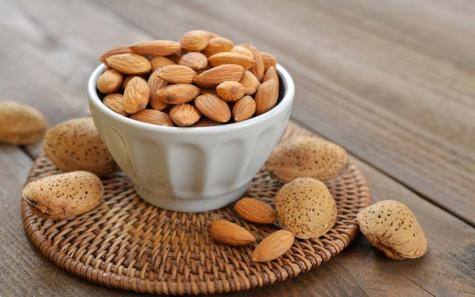 ## Benefits of Roasted Peanuts in Early Pregnancy 1. **Folate Content**: As mentioned earlier, roasted peanuts are a good source of folate, a B-vitamin that is critical for preventing neural tube defects like spina bifida in the developing baby. Adequate folate intake in the early stages of pregnancy is essential for proper brain and spinal cord development, making roasted peanuts a valuable addition to your prenatal diet. 2. **Protein Powerhouse**: Pregnancy increases your protein requirements to support the growth of your baby and the expansion of your own tissues. Roasted peanuts are a convenient and tasty way to boost your protein intake, helping you meet your daily requirements and promote healthy fetal development. 3. **Healthy Fats**: The healthy fats found in roasted peanuts, such as omega-3 and omega-6 fatty acids, play a crucial role in the development of your baby’s brain and nervous system. By incorporating roasted peanuts into your diet, you can enhance your intake of these essential fats and support optimal cognitive development in your baby. 4. **Energy Boost**: Pregnancy can be physically demanding, leading to fatigue and exhaustion. Roasted peanuts are a calorie-dense snack that can provide you with a quick energy boost, helping you combat tiredness and stay active throughout the day. 5. **Cravings Control**: Pregnancy cravings are common, and roasted peanuts can be a satisfying snack that helps curb your hunger and prevent overindulgence in less healthy foods. Their crunchiness and rich flavor can satisfy your cravings while providing valuable nutrients for you and your baby. ## Risks Associated with Roasted Peanuts in Early Pregnancy While roasted peanuts offer several nutritional benefits for expectant mothers, it is important to be aware of potential risks associated with their consumption during pregnancy. One of the primary concerns is the risk of peanut allergies, which can be severe and even life-threatening in some cases.
## Benefits of Roasted Peanuts in Early Pregnancy 1. **Folate Content**: As mentioned earlier, roasted peanuts are a good source of folate, a B-vitamin that is critical for preventing neural tube defects like spina bifida in the developing baby. Adequate folate intake in the early stages of pregnancy is essential for proper brain and spinal cord development, making roasted peanuts a valuable addition to your prenatal diet. 2. **Protein Powerhouse**: Pregnancy increases your protein requirements to support the growth of your baby and the expansion of your own tissues. Roasted peanuts are a convenient and tasty way to boost your protein intake, helping you meet your daily requirements and promote healthy fetal development. 3. **Healthy Fats**: The healthy fats found in roasted peanuts, such as omega-3 and omega-6 fatty acids, play a crucial role in the development of your baby’s brain and nervous system. By incorporating roasted peanuts into your diet, you can enhance your intake of these essential fats and support optimal cognitive development in your baby. 4. **Energy Boost**: Pregnancy can be physically demanding, leading to fatigue and exhaustion. Roasted peanuts are a calorie-dense snack that can provide you with a quick energy boost, helping you combat tiredness and stay active throughout the day. 5. **Cravings Control**: Pregnancy cravings are common, and roasted peanuts can be a satisfying snack that helps curb your hunger and prevent overindulgence in less healthy foods. Their crunchiness and rich flavor can satisfy your cravings while providing valuable nutrients for you and your baby. ## Risks Associated with Roasted Peanuts in Early Pregnancy While roasted peanuts offer several nutritional benefits for expectant mothers, it is important to be aware of potential risks associated with their consumption during pregnancy. One of the primary concerns is the risk of peanut allergies, which can be severe and even life-threatening in some cases.
…
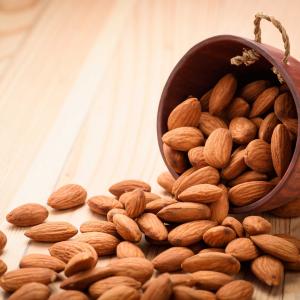 If you have a history of allergies in your family or have experienced allergic reactions to peanuts or other nuts in the past, it is advisable to exercise caution when consuming roasted peanuts during pregnancy. Peanut allergies are among the most common food allergies, affecting both children and adults. Allergic reactions to peanuts can range from mild symptoms like hives and itching to more severe reactions such as difficulty breathing and anaphylaxis. In pregnant women, uncontrolled allergic reactions can pose a risk to both the mother and the developing baby, emphasizing the importance of avoiding peanuts if you have a known allergy. Another potential risk associated with roasted peanuts is aflatoxin contamination. Aflatoxins are toxic compounds produced by certain fungi that can grow on peanuts stored in warm and humid conditions. High levels of aflatoxin exposure have been linked to liver damage and an increased risk of certain cancers. To minimize the risk of aflatoxin contamination, it is recommended to purchase high-quality roasted peanuts from reputable sources and store them in a cool, dry place. Additionally, roasted peanuts are calorie-dense and high in fat, which can lead to weight gain if consumed in excess. While healthy fats are beneficial for both you and your baby, it is important to practice moderation and balance in your diet to avoid excessive weight gain during pregnancy. Consult with your healthcare provider or a registered dietitian to determine the appropriate portion sizes and frequency of roasted peanut consumption based on your individual needs and dietary preferences.
If you have a history of allergies in your family or have experienced allergic reactions to peanuts or other nuts in the past, it is advisable to exercise caution when consuming roasted peanuts during pregnancy. Peanut allergies are among the most common food allergies, affecting both children and adults. Allergic reactions to peanuts can range from mild symptoms like hives and itching to more severe reactions such as difficulty breathing and anaphylaxis. In pregnant women, uncontrolled allergic reactions can pose a risk to both the mother and the developing baby, emphasizing the importance of avoiding peanuts if you have a known allergy. Another potential risk associated with roasted peanuts is aflatoxin contamination. Aflatoxins are toxic compounds produced by certain fungi that can grow on peanuts stored in warm and humid conditions. High levels of aflatoxin exposure have been linked to liver damage and an increased risk of certain cancers. To minimize the risk of aflatoxin contamination, it is recommended to purchase high-quality roasted peanuts from reputable sources and store them in a cool, dry place. Additionally, roasted peanuts are calorie-dense and high in fat, which can lead to weight gain if consumed in excess. While healthy fats are beneficial for both you and your baby, it is important to practice moderation and balance in your diet to avoid excessive weight gain during pregnancy. Consult with your healthcare provider or a registered dietitian to determine the appropriate portion sizes and frequency of roasted peanut consumption based on your individual needs and dietary preferences.

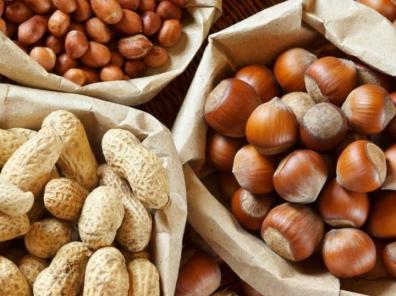
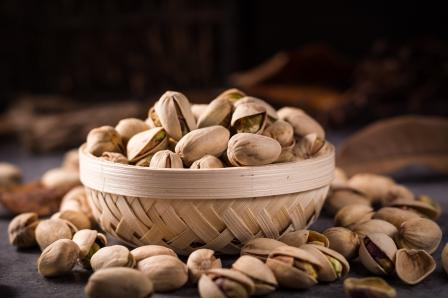

Your comment submitted.